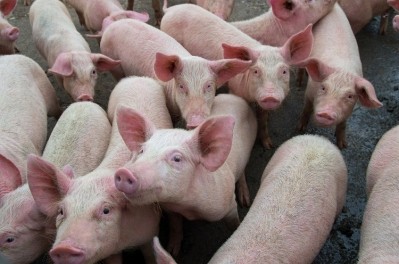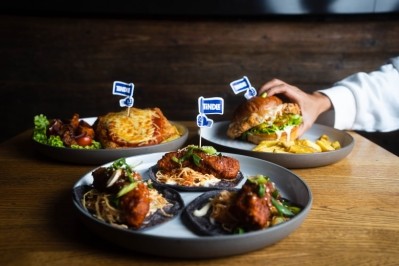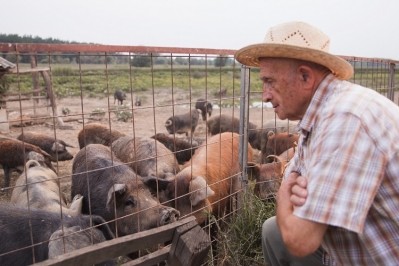From 'Fitbits for cows' to DNA testing and certification: How is the meat sector innovating to improve animal welfare?
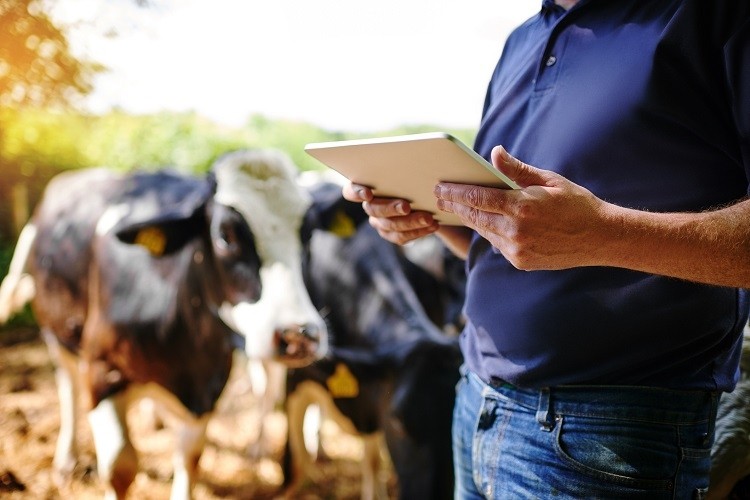
Last year, the European Commission committed to improving animal health and welfare under its Farm to Fork Strategy.
Specifically, the Commission pledged to revise animal welfare legislation by 2023, including on animal transport and the slaughter of animals, to align it with the latest scientific evidence.
A commitment to consider options for animal welfare labelling that better transmit value through the food chain was also made.
Whether those in the meat sector, from farmers to processors, support mandatory initiatives in this space (and many don’t), a number are innovating to improve animal welfare standards at a voluntary level.
Independent certification for German pork
In Germany, for example, an initiative developed in 2015 is now the nation’s biggest platform for greater animal welfare.
Initiative Tierwohl (ITW) wears many hats: it is a funding programme for animal welfare, an inspection body, it issues seals for rearing methods, has its own product seal, and promotes innovation in the industry.
For Robert Römer, Director General of ITW, traceability and transparency are key to the success of the initiative. “No reliable label can function without traceability and transparency,” he told delegates at a recent European Food Forum (EFF) event.
“If the principles traceability and transparency are not fulfilled, we do not need to talk about the rest.”
According to Germany’s animal welfare laws for pig farming, for example, an area of 0.75 square meters is required per pig with a live weight of 110kg. As per EU legislation, 0.65 square metres is required.
ITW’s animal welfare initiative has defined a standard of 35kg live weight per square metre. “When you compare the animal welfare initiative that we have developed, with EU law, you see we require 20% more than in EU law.”
For Römer, the ‘economic imbalance’ in the competition between farmers as producers ‘must be compensated’ in every animal welfare programme. Under ITW, a ‘complex procedure’ makes it possible for farmers to receive financial compensation for animal welfare measures above what is legally required.
This is necessary because consumers are not always willing to pay more for products produced to the highest standards, suggested the DG.
“When asked, many people respond that they prefer buying and consuming mainly products of the highest animal welfare standard. Reality appears to be somewhat different. Many consumers are very price sensitive.”
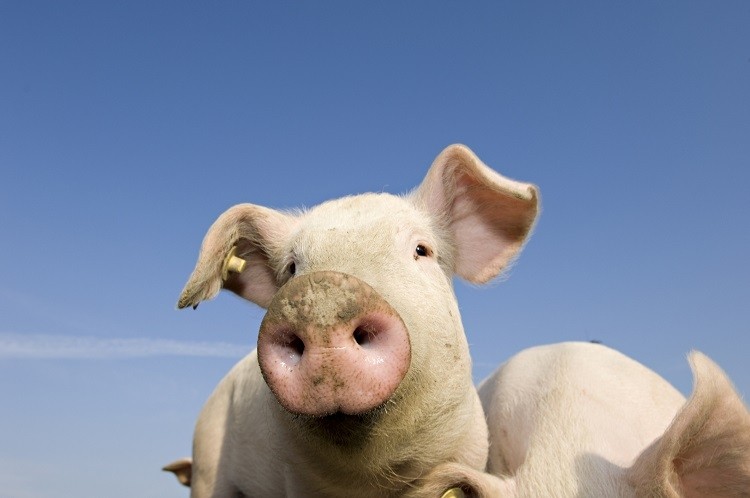
Since launching in 2015, ITW has onboarded 80% of German food retailers. From an agricultural perspective, ITW boasts around 10,000 farmer participants, meaning that 40% of all pigs grown in Germany – accounting for around 20m pigs per year – are reared according to its standard.
“In addition, we cover 80% of the poultry market [chicken and turkey], which in Germany is a good market share,” he added.
ITW is a voluntary, rather than mandatory, initiative, which at least in the short-term, Römer said was his preferred approach.
“We think it is better to go forward regarding animal welfare with a voluntary initiative…it should not start with a law straight away. It would be too difficult. It takes too long. And the levels [from our perspective] would likely be too low.
“This would not lead to a substantial improvement, especially since the preconditions in the Member States…are very different.”
Big Data in beef and lamb
In Bulgaria, innovation is being undertaken in the beef and lamb sectors. Having observed a significant amount of meat being imported, local industry was keen to differentiate their products.
The initiative, coined BLB Trace, leverages data from across the production chain to offer partaking players’ a competitive advantage.
BLB Trace is being spearheaded by Bulgaria’s Beef and Lamb Board (BLBBG), explained Andrey Chalakov, CEO of Network Agro Solutions and member of the Bulgarian Beef Breeding Association Board.
The system’s transparency relies on obligatory data in a voluntary digital environment. It is designed to be a simple, low-cost, and independent system that verifies meat’s origin.
“Our primary goal is to optimise the use of data [input by farmers and processors] and work it into a competitive advantage for our members,” Chalakov explained at the EFF event.
The standard is based on the ‘world’s best’ farming, processing and trading practices from Europe, Ireland, Australia and the US.
Data, as the backbone of the new internal standard, is validated with full transparency. “Every transaction is done via BLB Trace and every transaction is confirmed by both parties,” we were told.
BLB’s requirements were established in 2019, and this year the Trace System was developed. In 2021, BLB Trace will undergo pilot testing and the first participating members will be audited.
By the end of 2023, BLB Trace will be made available to more industry members, with a first result analysis expected before 2024.
Genetics and traceability to improve animal health
Over in the UK, a beef farmer is leveraging ID and traceability to keep his cows healthy. “The key thing for me is that animal welfare starts with animal health,” he told delegates.
And it’s all underpinned by ID and traceability. If you can’t prove what you say, ‘you’re in real problems at any level of consumer perception’, said Westaway.
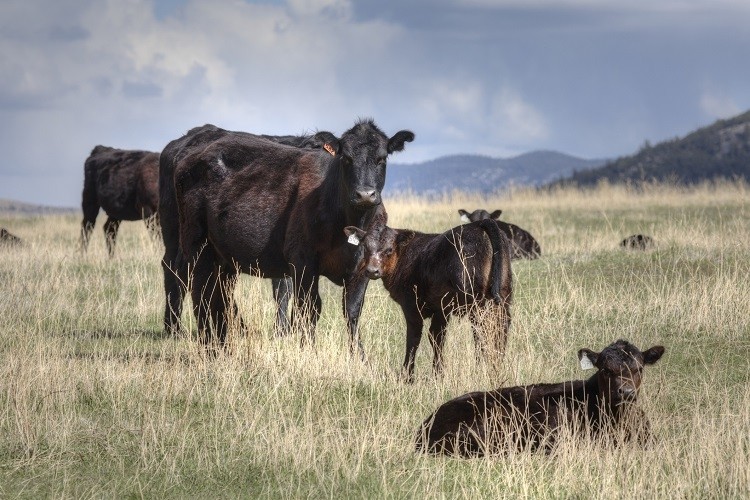
On the border of England and Wales, Westaway – who is also Livestock Business Development Lead Europe for MSD Animal Health – farms Aberdeen Angus and Murray Greys. Westaway takes pride in the farm's focus on environmental sustainability.
Two-thirds of the farm is on High Level Environmental Stewardship, and Westaway buys in ‘almost no’ fertiliser. This, he explained, appears to have been a ‘very smart’ investment, given that the fertiliser price has almost doubled in the last month.
Concerning animal health, Westaway has monthly meetings with his vet, focusing on prevention rather than cure.
But the real innovations lie in the tools used to ensure the cows’ animal welfare is ‘the best’.
“It starts with genetics,” the farmer explained. “All the bulls we’re using are genomically mapped…and we’re really interested in things like net feed efficiency, trying to use the best bulls we can, and those hard-to-measure traits, [such as] does she eat less and grow more? It starts with genetics.”
Westaway also has full traceability via DNA samples, meaning that if anyone wants to prove their steak comes from an Aberdeen Angus, they can via testing. It’s a premium product, the farmer continued, “and we absolutely have to prove it.”
Cows on the farm wear a blue monitoring tag, which Westaway described as a ‘Fitbit for a cows’. Every 20 minutes, the tag reports to a smartphone to let the farmer know she is eating, ruminating, walking, and that everything is running as it should.
“It’s the best herds person in the world that you could hire,” he told the event. “Is it [essentially] asking the cow 120 times per minute ‘Are you ok?’”
Knowing remotely that nothing is amiss also saves Westaway time. “When I look at my phone in the morning, and I see that everybody is happy, I don’t need to go outside and look. That is really key.”
For Westaway, it’s ‘all about welfare’. “If our cows are happy, they’re more productive.
“Can animal welfare be economic? Absolutely yes. If my cows are healthy, if my cows are happier, and they have the highest animal welfare standards, they generate more profit.”

